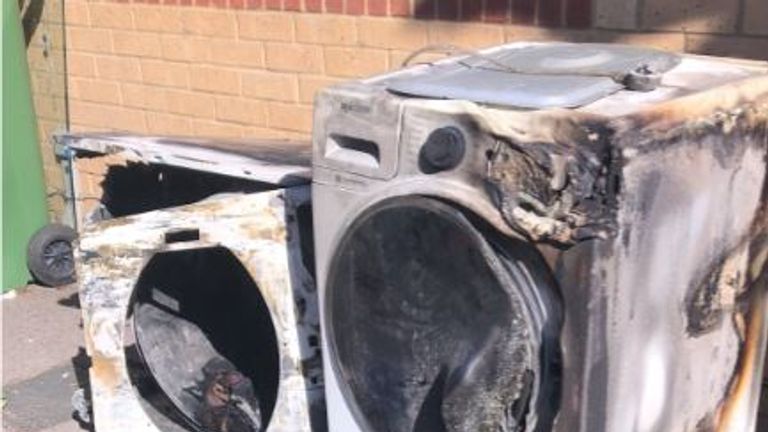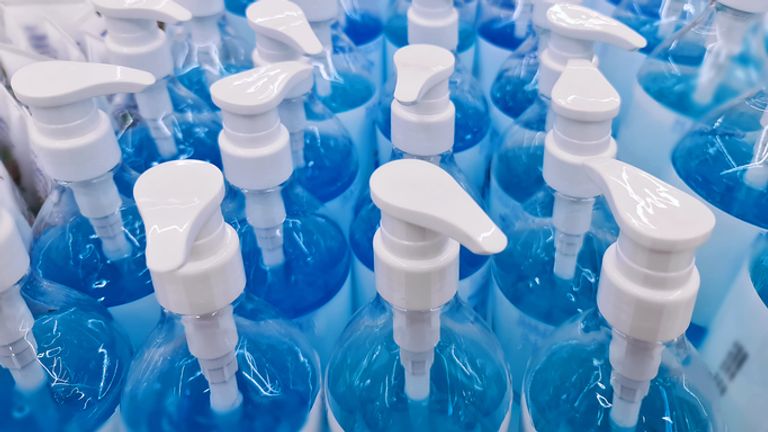Britain’s product safety regulator has been slow to respond to dangers such as those posed by mini magnets because it lacks the data and intelligence needed to assess risks, a report has found.
The Office for Product Safety and Standards (OPSS) received a report about the magnets, which can cause serious injury if swallowed, in January 2018, but did not take national action until this year.
A review by the National Audit Office (NAO) of the OPSS’s work faced “major challenges regulating safety in a changing marketplace”.
The spending watchdog found that the regulator had made “impactful reactive responses” to issues including the recall of Whirlpool tumble dryers.
It also oversaw the removal of hundreds of listings of non-compliant hand sanitisers and face coverings sold online during the pandemic.
But it has been “slower to address other serious areas of consumer harm as it does not have the data and intelligence it needs to assess consumer risks”, the report concluded.
The OPSS was set up in January 2018 to strengthen the regulatory regime and take leadership on product safety issues, working alongside trading standards and the border force.
Most of the regulator’s national incident responses saw it react to pressing issues rather than coming as the result of a broader assessment of risk, the NAO found.
The report highlighted the case of small, high-powered magnets – found in toys and jewellery – which can cause serious harm, especially to children, if two are swallowed at the same time.
If the magnets are in different sections of the bowel they can magnetise together causing injury or cutting off blood supply, requiring emergency surgery or intensive care.
Problems had been identified going back more than a decade and an OPSS review found 102 incidents in children globally since 2008, three quarters of which required invasive surgery.
More recently, data supplied by the NHS early this year showed there were 40 paediatric admissions in the UK alone in 2020.
Separately from today’s report, a TikTok trend where teenagers place two tiny magnets on either side of their tongue to give the appearance of a tongue piercing recently prompted the NHS to call for them to be banned.
The NAO said: “Problems with the product were first identified long before the OPSS was established, but it only intervened in February 2021 after gathering the data to determine there was a national issue.
“Its data strategy is at an early stage and the NAO found it was less developed than in other government organisations.”
The report also noted that the regulator faces increased responsibilities following Brexit, with 2.8 million lorries arriving at ports coming under its remit for checks – implementation of which have so far been deferred – up from 100,000 currently.
Since the UK left the EU single market in 2021, product safety functions have been repatriated from EU level to the UK, with the OPSS responsible for most.
Gareth Davies, head of the NAO, said: “Ensuring regulation keeps pace with emerging product safety issues is a major challenge.
“Regulators do not have the powers they need to enforce online and the OPSS lacks the data and intelligence it needs.”
Sue Davies, head of consumer protection policy at Which?, said: “Consumers are being exposed every day to dangerous and illegal items on online marketplaces that have been sold without adequate safety checks or monitoring.
“As the NAO has highlighted, the current regulatory framework isn’t fit for purpose.”
A Department for Business, Energy and Industrial Strategy spokesman said: “The government’s top priority is to keep people safe, which is why the OPSS is leading efforts to ensure goods sold in the UK meet some of the strictest safety laws in the world.”


